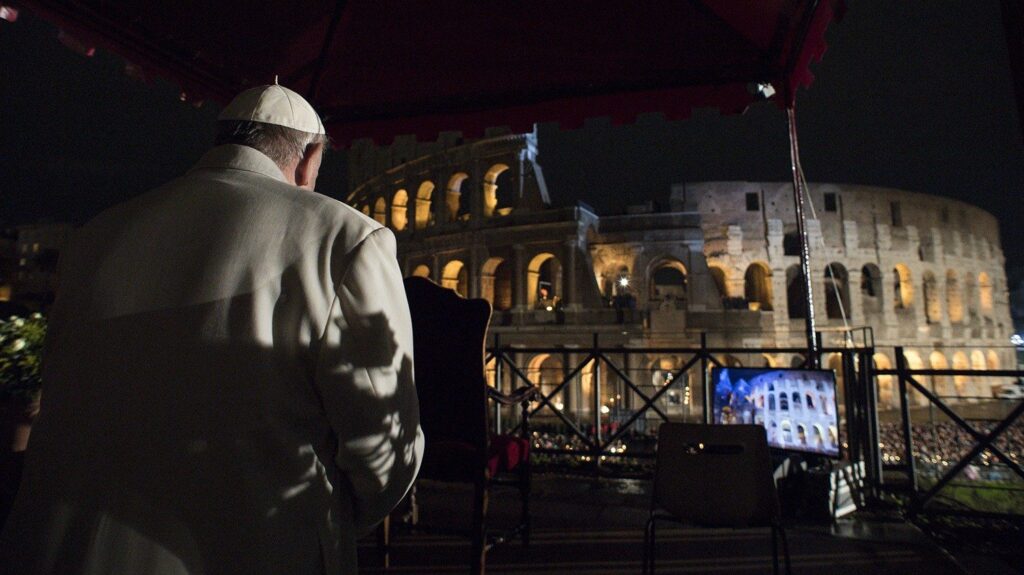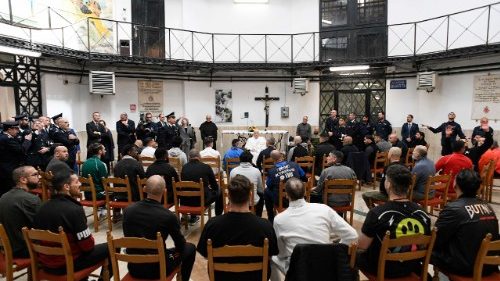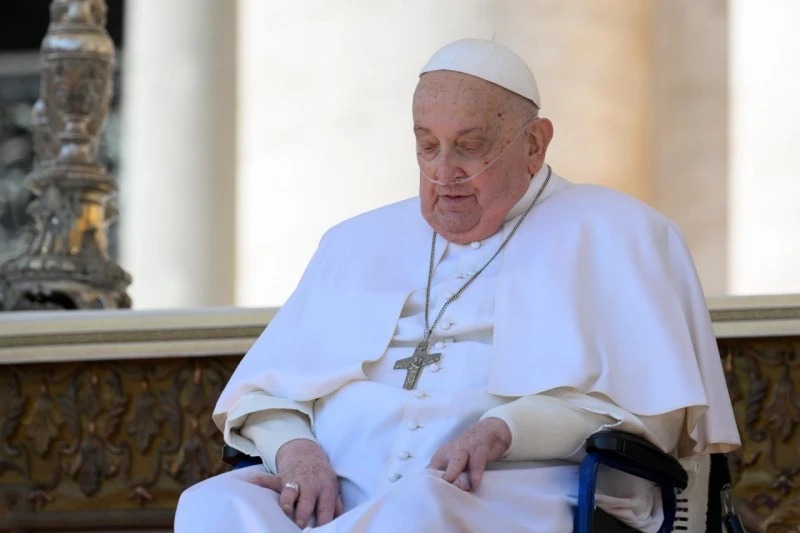Pope Francis: the courage of dialogue to overcome hatred and war
We publish the Pope's preface to Andrea Riccardi's new book "The Words of Peace" (EDB), which collects the speeches given by the founder of the Community of Sant'Egidio on the occasion of the annual meetings promoted after the great interreligious meeting for Peace in Assisi desired in 1986 by John Paul II

This book, “The Words of Peace”, bears witness to the long journey made from the Interreligious Meeting for Peace in Assisi in 1986, desired by Saint John Paul II, to the present day. Through the collection of Andrea Riccardi’s texts, delivered in the framework of these annual meetings, the problems of the moment, the threats of war and the expectations of peace are highlighted. The energies and hopes aroused by dialogue between religions and believers also emerge. It is these feelings that always help us not to despair at the thought that peace is possible.
Pope Wojtyla’s intuition, inviting the religions of Assisi to pray together and not against each other, was bold. The Cold War was still raging and the times seemed threatening. Religions could represent, on the one hand, resources for peace, but, on the other, they could fuel or sacralize conflicts.
The event in Assisi surprised the world by its novelty. Anyone who lived through that October 27 in Assisi knows that it was perceived, even from afar, as a historic event by the people. However, there was no lack of controversy, as is often the case with historic events. The problem was how to continue this path after the great event in Assisi. John Paul II had said at the end of the meeting: “There is no peace without an indomitable will to achieve it. Peace awaits its prophets” (John Paul II, Assisi, 27 October 1986).
Assisi “cannot and must not remain an isolated event”, as I myself said when I welcomed the religious leaders in Rome at the end of the International Meeting for Peace on 30 September 2013:
“You have continued this path and have increased its momentum, involving important personalities of all religions and secular and humanist exponents in the dialogue. Precisely in these months we feel that the world needs the spirit that animated that historic meeting. Why? Because it needs peace very much. NO! We will never be able to resign ourselves to the pain of entire peoples, held hostage by war, poverty and exploitation. The trip to Assisi, in the years after 1986, was an act of trust in prayer and dialogue for peace.
This journey brought together different personalities from a religious point of view; you have travelled to different places in the world. First twice in Rome, in Trastevere, then in Warsaw in 1989, when the Wall was about to fall, or in Bucharest. In 1998, he paved the way for the first apostolic journey of a Pope, John Paul II, to an Orthodox country. The “spirit of Assisi”, in the practice of dialogue and friendship, has for centuries formed men and women of peace from different, distant or hostile religions.
The path taken “each year suggests the path to us: the courage of dialogue”: religious leaders are called to be true “dialoguers”, to act in the construction of peace, not as intermediaries, but as authentic mediators. Each of us is called to be an architect of peace, uniting and not dividing, extinguishing hatred and not preserving it, opening paths of dialogue and not building new walls.
Dialogue, encounter to establish the culture of dialogue, the culture of encounter, in the world. On this path, the religious worlds have come closer together. Although there are still areas and situations of fundamentalism that cause concern, in the 21st century there has been a profound change in the relationship between believers of different religions, who have begun to consider dialogue as decisive.
I am thinking in particular of the Document on Human Fraternity for World Peace and Living Together, which I signed with the Grand Imam of Al Azhar, Ahmad Al-Tayyeb, in 2019. Today, however, more dialogue is needed. Precisely at this time, with so many open conflicts and threats of war, we realize that “the world is suffocating without dialogue” (Pope Francis, June 15, 2014).
Open, frank and constant dialogue is necessary. Religions know that “dialogue and prayer grow or perish together. Man’s relationship with God is the school and nourishment of dialogue with men” (Pope Francis, 30 September 2013). For this reason, in the journey undertaken in the spirit of Assisi, with the impetus of the Community of Sant’Egidio, prayer has always been a central dimension. Indeed, we believe in the humble and gentle power of prayer.
After 1989, the world became globalised, becoming unified in many aspects, such as finance and trade, communications. However, it remained deeply divided. Division has been fuelled by a spirit of suspicion that has led to military devices not only being maintained but increasing. It is the idolatry of armed force: since the development of nuclear, chemical and biological weapons, and the enormous and growing possibilities offered by new technologies, war has been given an uncontrollable destructive power. In truth, humanity has never had so much power over itself and there is no guarantee that it will use it well (Fratelli tutti). Andrea Riccardi rightly writes in these pages: “We are in an age in which too many can wage war, with terrible weapons at their disposal.”
But we are not paralyzed by fear, even if we are worried. We do not resign ourselves to the dominance of force and arrogance. We do not renounce dialogue, allowing the spirit of hatred and war to invade the religious worlds and the spirits of believers. Let us not turn back on the ecumenical and inter-religious path of so many years, as the spirit of division and evil wants. “Religions cannot be used for war. Only peace is holy and let no one use the name of God to bless terror and violence,” I said while participating in one of these Meetings (Pope Francis, Rome, October 25, 2022).
This is an awareness acquired on the path of dialogue, friendship and prayer: that peace is holy and the name of God cannot be used to fight or terrorize! This awareness is widespread and rooted in the people of simple believers who want peace. Their prayers and those of those who suffer from war support dialogue.
Thus, formed by the friendship of so many years, believers and, in particular, religious leaders and leaders, form “a network of peace that protects the world and especially the weakest” (Pope Francis, 30 September 2013). This book follows the constructive moments of this network. That is why I repeat what I said, participating in one of the Meetings in the Spirit of Assisi, promoted by Sant’Egidio, in front of the Colosseum: “If you see wars around us, do not resign yourself! The people want peace!”
Related

Stations of the Cross 2025: Pope Francis leads Good Friday prayer with his own meditations
Exaudi Staff
18 April, 2025
32 min

Pope Francis brings hope to prisoners: visit to Regina Caeli on Holy Thursday
Exaudi Staff
18 April, 2025
1 min

“Priests as Bearers of Hope”: Pope Francis’ Call at the Chrism Mass
Exaudi Staff
17 April, 2025
1 min

Pope Francis’ Catechesis: God always comes to find us!
Exaudi Staff
17 April, 2025
5 min
 (EN)
(EN)
 (ES)
(ES)
 (IT)
(IT)

